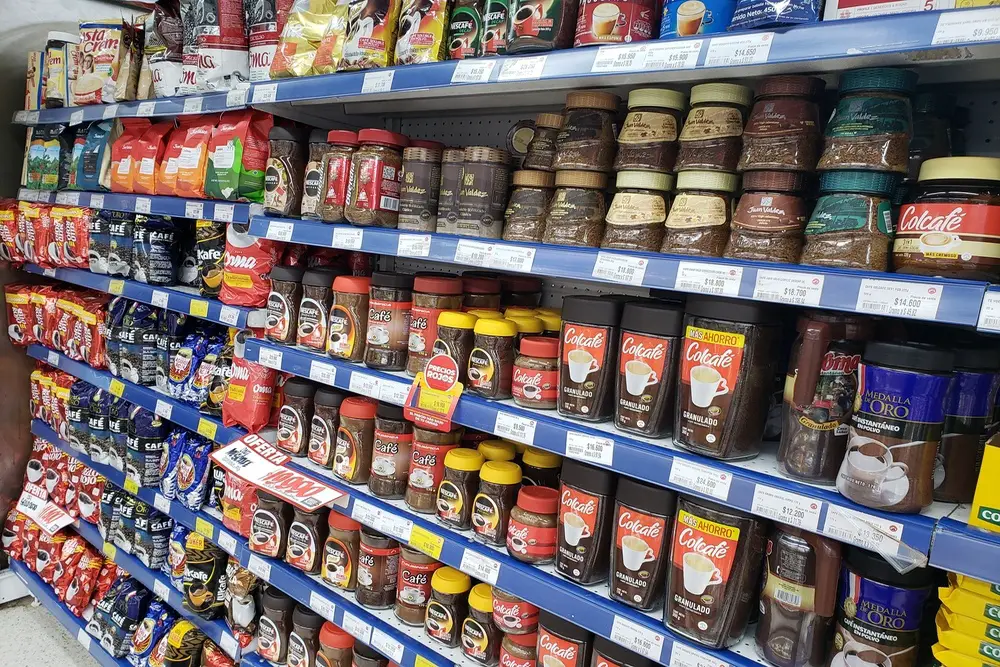Table of Contents
First considerations for a coffee roasting company
Before investing money in equipment and raw materials, those who are already in the world of coffee roasting recommend first an analysis of the current market situation.
To do this, it is necessary to define whether your business will be profitable in the future, since the success of your venture depends on several factors.
Therefore, you should pay particular attention to the local market situation. Even if it seems obvious, many people do not consider the aspects important to their business, e.g. B. whether and how many people buy coffee specialties in their area.
Therefore, it is very important that you use the reach of social networks to find out through surveys whether your niche has a sufficient customer base.
This way you can ask your friends, neighbors and just about anyone in general about their coffee preferences.
Then you know what you will find before you start your project. Also, it’s good to start locally, i.e. with the people you know will really appreciate your product.
And then you can think about expanding via digital channels.
The profitability of a coffee roasting company
It has been proven that a coffee roastery can be even more profitable than a retail store. In 2017, for example, the Specialty Coffee Association published a financial report aimed at coffee roasters in North America.
It is the largest study in this area to date and what is interesting is that it provides important information for the industry.
This resulted in the following findings.
Coffee shops and specialty restaurants aren’t as profitable
Coffee retailers, i.e. specialty coffee shops and restaurants, had an average gross profit margin per item sold of about 54%.
However, according to several entrepreneurs who participated in the study, additional operating costs, such as the cost of a storefront and utility services, made these companies the least profitable in the study, with a profit of 6.86%.
Coffee roasters made the highest profits
Another finding is that retail coffee roasters often offer their own brand of coffee, which then earns them a 65% gross margin.
This equates to a profit margin of 8.79%, which is relatively high.
Concentration on the wholesale business with coffee roasters
Likewise, the study found that roasters that focus on wholesale have lower gross margins of about 44%.
However, these roasters also achieved significantly higher sales, averaging $750,000 per year.
The latter may have something to do with the fact that the roasters have built up good, long-term business relationships with major customers.
A combination of wholesale and retail is ideal
The roasters that combined wholesale production with retail production also had the best profit margins of any sector surveyed, averaging 11.92%.
The conclusions that can be drawn from the report are therefore the following:
- Those coffee entrepreneurs looking to expand their operations should consider roasting their own coffee.
- It is beneficial for coffee roasters to simultaneously engage in wholesale production as it allows them to serve a larger customer segment, giving them greater competitiveness.
Tips for starting a coffee roasting business
But despite the positive information in this report, it must be said that starting a business is not easy. So, if you want to get started on your project, we have some tips for you.
Set up a business model
The first thing to do is determine how much money you need to start your business and how much you are willing to invest.
Thus, some experts say that the two most expensive items when starting a coffee roasting company are the roasting oven and the cost of the premises that you will be using.
The roasting machine
A professional coffee roaster can be expensive. So, we can see that a 1-pound coffee roaster oven can reach $11,000.
However, the capacity of a 1-pound roaster is very small, meaning it’s not enough to roast a large amount of coffee.
You should therefore think carefully in advance about the capacities you will need in the future and purchase a machine with a corresponding capacity.
Location costs and operating costs
The cost of the location where you will set up your roastery should also be a priority in your operating budget.
It is therefore important that you have enough capital to be able to pay the rent for the premises and the utilities.
Additionally, depending on the country, you may need to obtain an operating license to demonstrate that the oven site is safe for food processing.
Additional costs of a roastery
The rest of the basic things you need such as e.g.:
- Coffee packaging
- Labels
- Sealants for packaging
- And especially green (unroasted) coffee beans
For example, it has been estimated that the average roaster should make a profit of $5 for every pound of green coffee purchased for roasting.
Using this number, you can calculate how long it will take to recoup your initial investment once you start selling roasted coffee to your customers.
Build a loyal audience
We know it’s easier said than done, but building a loyal customer base who actually want to buy the product you make is essential to the long-term sustainability of your business.
However, coffee roasting can have a great advantage over other lines of business as there are already a large number of coffee lovers.
So the challenge is to get these coffee drinkers to taste your coffee, which will not be an easy task, but it will not be impossible either.
So, a good way to quickly build an audience is to sell your coffee wholesale, both at restaurants and local coffee shops.
Offer discounts
By offering your coffee brand at a discounted price when it’s still in its infancy, you might be able to reach a larger audience.
Remember that people are usually attracted to cheap items and discounts can lead to positive purchasing decisions.
Don’t sell more coffee than you can roast
Wholesale distribution, on the other hand, is the most reliable way to generate ongoing income as orders are large and consistent.
However, this places a greater production burden on you as you have to keep up with the large volume of orders, even if you only work with a bulk buyer.
You should always be realistic and responsible about the contracts you enter into.
Even if a big order sounds good to you because it means a lot of money, you should first see if you can fulfill it.
Expand your market
Coffee shops and specialty restaurants are the most obvious markets for you as a coffee roaster. However, note that there are other places where you can sell your product.
Hotels, office cafés and small shops also offer a good opportunity to position your company.
You can create your own website
Face-to-face selling is important, but remember that having a website is a great way to expand your brand.
Whether you’re investing in a web developer or building your own website, these are options to consider for your brand.
This way you can reach more people not only in your city but also in other regions and countries.
Social media and the roastery
Social media is a great tool for new entrepreneurs as it can expand the reach of their business.
In this way, an Instagram or Facebook account is a great way to connect with your brand’s potential customers.
This allows your followers to interact with your product, which ultimately increases awareness of your business.
You can even launch promotions and discounts to get people interested in your products.
However, this requires a lot of hard work on a daily basis, so you have to spend a lot of time producing relevant content for your followers.
You should also consider hiring someone to manage your brand’s social media presence.
However, if you are successful, your brand will be able to grow your business.
Production of quality coffee in a roastery
Everything we mentioned above is necessary for your business to function, but the most important thing is the quality of the product you are making.
Typically, those who work in coffee roasting are people who already have experience with the coffee production process.
However, this does not mean that you cannot start your business even if you are not a coffee expert, but it is true that it will take you more time and effort since the roasting determines the final taste of the coffee.
Therefore, the whole thing should not be taken lightly, because it has to be perfect to ensure a good end result.
While most modern coffee roasters have software that allows them to dial in the roast level they want, you also need to know what flavor variations you’ll get as a result.
So, it will take time to master the art of roasting. On the other hand, you should teach your customers how to drink the coffee properly. So, it’s a good idea to post relevant information from your experience.
This shows people that you know what you are talking about and increases your brand recognition.
This, in turn, increases traffic to your websites and increases the likelihood that you will sell your product.
Avoid debt
We also believe that there is no need to spend a lot of money on the location of your business, at least in the early days of your business.
You can also use plain packaging for your coffee because the most important thing is that your customers know your brand.
And as far as your digital presence goes, don’t worry about the most elaborate and sophisticated website, because that’s not the goal at this stage of the business.
Instead, focus more on the quality of your content and how to position your brand organically.
Finally, if possible, avoid incurring any bank or creditor debt before your business begins to thrive.
Patience for setting up a roasting operation
Good results don’t come overnight because there will be difficult times when you will make little or no money.
Also, running your own business, at least initially, is something you get involved in every day, which can be stressful and tiring.
At the same time, you need to have a realistic but clear picture of where you want to take your business.
On the one hand, if you are not realistic about your goals, you are likely to become frustrated with the normal failures that occur with any new project and abandon the project prematurely.
On the other hand, if you are unsure of where you want to take your business, you will never be sure if what you are doing is right for your business.
When entering into a partnership, you should analyze very carefully the people you will be working with, because a good partner can be of great help in the most difficult moments of the company.
A bad partner, on the other hand, can even derail the business before it even begins.



